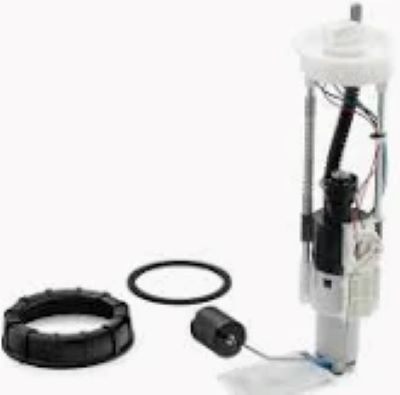Fuel Pump trouble can be diagnosed by observing some symptoms and verifying with the help of diagnostic tools. Signs Your Fuel Pump Is FailingOne of the biggest signs of a failing Fuel Pump is that your engine will not start. The engine could crank a little longer than normal or it might not start at all. This is usually due to the Fuel Pump not producing enough pressure able to feed gas into the engine. Fuel Pumps tend to run in the 30-80 psi range (pending on car) and a pressure below that will likely cause improper combustion.
A fuel pressure gauge is instrumental in debugging Fuel Pump issues since it can be used to measure the pressure inside fuel line. With the gauge connected to rail and engine running you can determine if pump is providing proper pressure. If a reading lower than what the manufacturer specifies, is registered, this would mean a weak or failing Fuel Pump. For example, the engine will hardly run or not start if the pressure in a system that needs 60 psi is only at 20 psi and more such like.
Engine Stalling — Especially Under Load or at High Speeds with your Fuel Pump Going Bad If the Fuel Pump cannot keep constant pressure, making it difficulty for engine to receive required fuel it may sputter or stall. In some cases, a fuel filter becomes clogged or the pump motor fails (a problem that can crop up after 100k miles or more).
Another sign of Fuel Pump failure is a loud whining sound that comes from the fuel tank. This sound can be the case for instances when the pump is working really hard to suck gas through some kind of blockage somewhere, or perhaps there's a defect within the pump itself. It is important to keep in mind that a typical Fuel Pump will work almost silently, make sure to check any weird sounds.

Ford was the subject of one high-profile recall in 2020, recalling more than 200,000 vehicles over bad Fuel Pumps that were stalling engines. The fact that the recall was preventive in nature served to highlight the need for early warning to prevent bigger problems from happening.
This may also involve using an OBD-II scanner for fuel system diagnostics to read any trouble codes related to the fuel system. If the check engine light is lit, a P0087 code will show that fuel pressure is low and this tells us Fuel Pump/ System.
Mechanic and auto expert Scotty Kilmer: “Diagnosing a Fuel Pump problem early can save you hundreds in repair costs and keep you from being stranded on the road. But be sure not to ignore your fuel system, as the tip loosely translates into: An ounce of prevention—a clean fuel rail or a new regulator—can go a long way.
If you start to notice any of these symptoms, Have the Fuel Pump checked or replaced before it causes more severe engine damage and expensive repairs.